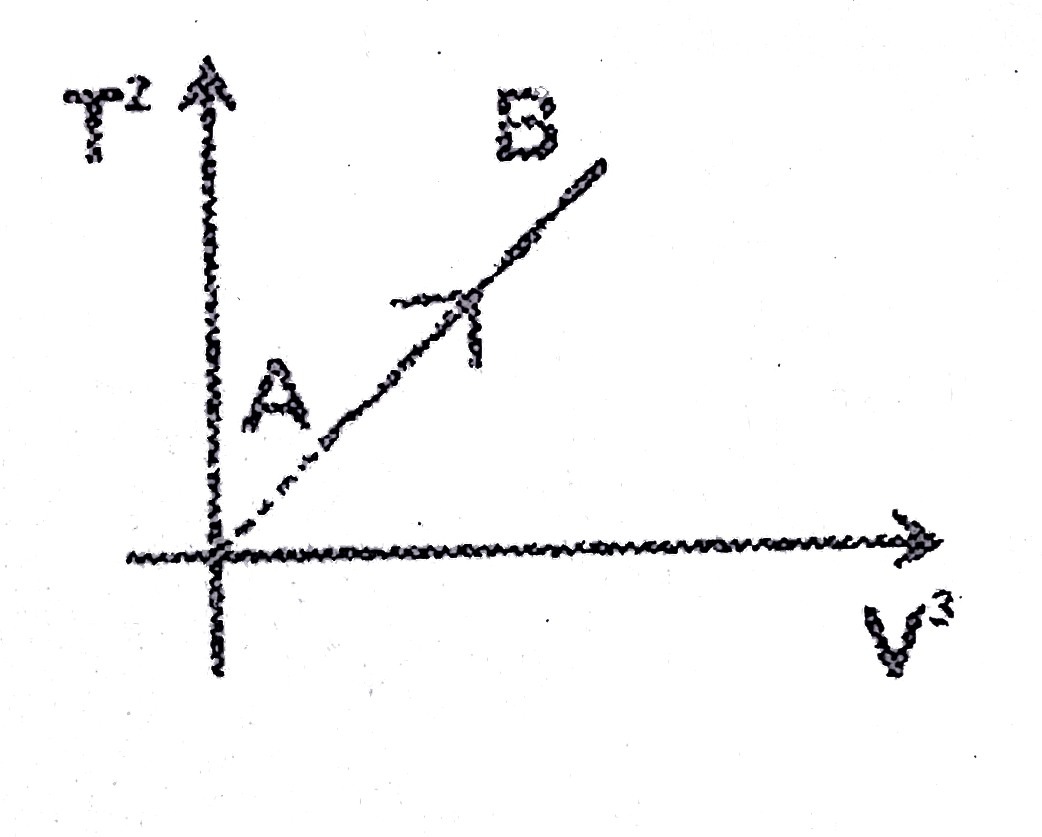Molar specific heat at constant volume for an ideal gas is given by Cv=a+bT (a and b are constant), T is temperature in Kelvin, then equation for adiabatic process is (Ris universal gas constant)
TaebTVR=constant
TRebTVR=constant
TbeaTVR=constant
TaeRVbT=constant
The correct Answer is:A
For adiabatic process ΔQ=0
Therefore ΔU=ΔW⇒Ncvdt=−PdV
n(a+bT)=−nRTVdV(aT+b)dT=−dVV
Integrating both sides we get TaebTVR= constant
Topper's Solved these Questions
Similar Questions
Knowledge Check
Molar specific heat at constant volume Cv for a monatomic gas is
A32RB52RC3RD2RThe molar specific heat at constant volume, for a non linear triatomic gas is
A3RB4RC2RDRThe molar specific heat at constant volume of gas mixture is 13R6. The gas mixture consists of
A2 moles of O2 and 4 moles of H2B2 moles of O2 and 4 moles of argonC2 moles of argon and 4 moles of O2D2 moles of CO2 and 4 moles of argon
The molar specific heat at constant pressure of an ideal gas is (7/2R). The ratio of specific heat at constant pressure to that at constant volume is
View SolutionAssertion: Molar specific heat at constant volume of an ideal diatomic gas is [32R+R].
Reason: On heating 1 mole an ideal diatomic gas at constant pressure of 1∘C rise in temperature, the increase in internal energy of gas is 72R.
View SolutionIf the molar specific heat capacity at constant volume of an ideal gas is Cv=32R, then what is the corresponding molar specific heat capacity of the ideal gas at constant pressure ?
View SolutionCv denotes the molar specific heat of a gas at constant volume and γ is the adiabatic constant, then the universal gas constant R is given by
View SolutionIf ideal diatomic gas follows the process, as shown in graph, where T is temperature in kelvin and V is volume (m3), then molar heat capacity for this process will be [in terms of gas constant R]:

View Solution

